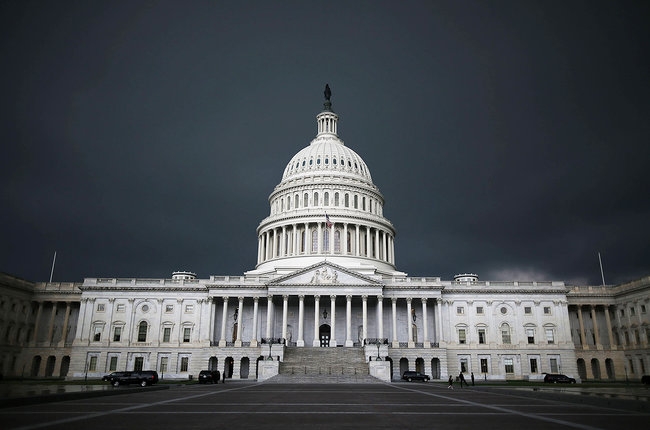The ongoing healthcare debate in Congress and, in general, politics between the Democrats and Republicans, have been holding up Donald Trump's appointments throughout the United States federal government over the past several months. And now, some music industry executives are worried that the Dept. of Justice’s appeal of BMI’s victory against full-works licensing will proceed to trial without the new administration and its DOJ appointments weighing in on the issue.
The issue is one that goes back several years, and could have wide-ranging effects for music publishers and songwriters.
Under the Obama administration, the music publishing industry attempted to convince the DOJ that the consent decrees, under which the performance rights organizations ASCAP and BMI operate, should be amended to allow for partial withdrawals of digital rights from the PROs' blanket licenses. But instead of modifying the consent decree, the DOJ ruled that the U.S. music industry should engage in full-works licensing -- the ruling at the center of this ongoing debate -- which is seen as a disaster for music publishers and songwriters.
Here's why that's such a big deal. According to music publishers, the industry has traditionally engaged in fractionalized licensing; for example, if a song has multiple songwriters, music users -- such as radio broadcasters or digital services like Spotify -- have to get a license from each songwriter and their respective publisher in order to legally use the song. In full-works licensing, however, music users would only need a license from one of the songwriters in order to use the song, regardless how how many there are. Unlike the music publishers, music users have long contended that full-works is how licensing has worked.
Publishers, however, fear that the full-works interpretation, if imposed, will result in lower rates; disrupt how the industry operates; and impose new needless costs on them. Music users, on the other hand, think that full-works licensing would make the very complicated licensing process much easier -- and say that any fears that the practice will drive down rates is hogwash.
After the DOJ's full-works ruling, BMI challenged its interpretation in court and won; in a Sept. 16, 2016 ruling, Judge Louis Stanton ruled that the “consent decree neither bars fractional licensing nor requires full-work licensing.”
The DOJ appealed Judge Stanton's ruling on May 18, 2017.
At the time, many in the music publishing industry hoped that the DOJ's appeal was just a placeholder, given that it wasn't known if the people installed in the DOJ by the Trump administration would align with the full-works argument under Obama's Department.
BMI declined to comment for this story, referring Billboard to its earlier statement from president/CEO Mike O'Neill when the DOJ first filed its appeal in May: “While we are not surprised the DOJ chose to pursue its appeal, we still hope for the opportunity to sit down with the new administration and educate it about the chaos that would result in the marketplace if the DOJ’s interpretation of BMI’s consent decree were implemented. The DOJ’s 100 percent licensing position, an entirely new interpretation never raised by the Department before, unfairly advantages music users at the expense of the American songwriter and upends a longstanding industry practice that has worked effectively for decades. We believe Judge Stanton’s decision is correct and look forward to vigorously defending our position in the Court of Appeals for the Second Circuit.”
In April, Makan Delrahim was been appointed by the Trump team to lead the DOJ’s anti-trust division, and his appointment was approved by the Senate Judiciary Committee 19 to one in June. But his approval by the full Senate is being held hostage by the Democrats, who are trying to stall all confirmations in order to slow Trump’s reversal of policies, including the Affordable Care Act, enacted by the Obama administration, according to various press reports.
That is ultimately where the music industry's current concerns lie.
“It's outrageous that the Democrats are holding up his appointment,” says one music industry leader fearful that 100 percent licensing is still a possibility that will be decided by a trial. “There are plenty of music publishing firms in New York. They should all get on the phone and start contacting the office of [Senate minority leader] Sen. Chuck Schumer to stop stalling.”
Delrahim is not the only appointment on hold. In fact, according to the Chicago Tribune, as of June 30, 242 appointments had been made by the Trump Administration, with just 50 approved by Congress.
One veteran Washington observer says the music industry is taking a parochial viewpoint when it sees Democratic stalling as something that could potentially hurt music publishers and songwriters. “If the music industry wants to do navel gazing, maybe they should be aware that there are about another 20 Trump appointments to ambassadorships around the world that haven’t been approved yet, either,” that observer states.
Nevertheless, some in the music industry are hopeful that if Delrahim were approved, he would -- if properly briefed by the music publishing sector -- put a halt to the DOJ's appeal. But others in the music industry say there is nothing to indicate one way or another if that would be the case. Regardless, BMI must continue to prepare for the appeal; its response to the Appeals Court is due Aug. 17, with amicus curiae briefs from the rest of the industry due shortly after.
“We very much want the Trump administration to look at this issue, but meanwhile the trial has to go forward,” says National Music Publishers’ Association president David Israelite. “We will file an amicus brief and we are confident that [BMI] will win in court.”
However, a source in the digital services' camp disagrees. “I think the Justice Department is correct,” that executive says. “If you look at the ASCAP or BMI license, the wording says, if you get their blanket license, that the licensee is entitled to play any song in their catalog. It's as clear as the nose on your face.
“Now, it's true that in direct licenses, when one publisher does a deal, you only get a fractional license if it's specified as such,” the executive continues. “But with the PROs, these are collections of thousands of publishers for a blanket license. Naturally, the rules are different.”
After BMI's response and the amicus briefs are filed, the path to oral arguments and a decision could take anywhere from nine to 15 months, which means that Delrahim and his DOJ hires may still have a chance to weigh in on whether the DOJ should continue to participate in the trial.
In the meantime, it's business as usual for BMI, which sources say is preparing to make its case to the panel that will hear the appeal. For now, the fate of the case could rely on whether Congress will act -- or whether politics will continue to get in the way and result in the issue be determined on its merits by the appeal process.








